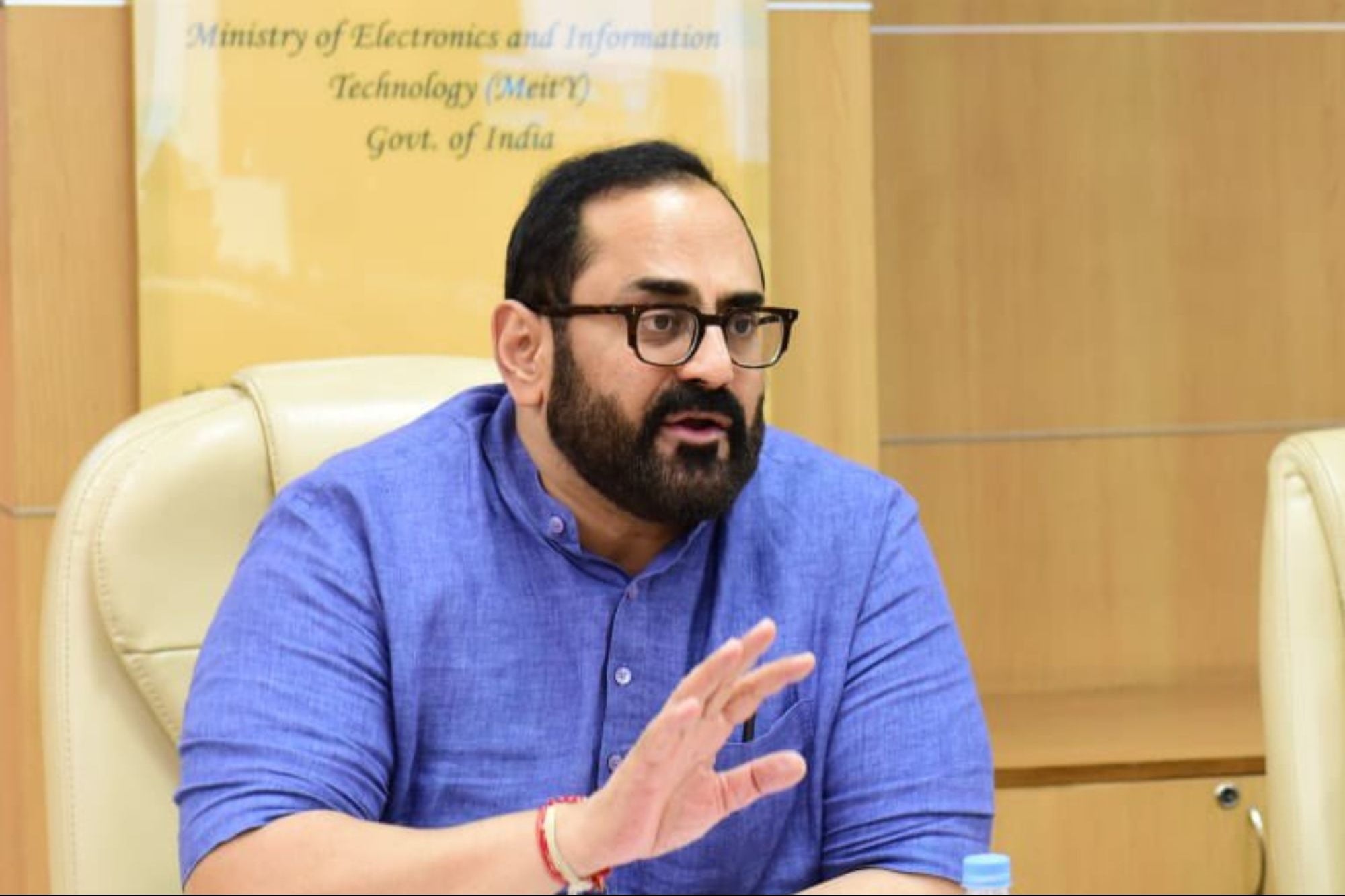

Union Minister Rajeev Chandrasekhar (File Photo)
The mobile phone manufacturing has increased from an estimated Rs 18,900 crore in 2014-15 to an estimated Rs 3,50,000 crore in 2022-23, making an impressive increase in production by more than 1,700 per cent, the government said on Wednesday.
Replying to a question in Lok Sabha, Minister of State for Electronics and IT, Rajeev Chandrasekhar, said that from almost insignificant in the global electronics supply chain, India is currently rapidly becoming a significant and trusted player in the electronics global value chain (GVC).
“To transform our domestic manufacturing from import substitution to export-led manufacturing, the government has reduced the basic customs duty (BCD) to 10 per cent (from 15 per cent) on the goods covered under mechanics, die-cut parts and others category for use in the manufacturing of mobile phones,” informed the minister.
India has become the second largest manufacturer of mobile phones in the world (in volume terms).
“The export of mobile phones has also increased from an estimated Rs 1,566 crore in 2014-15 to an estimated Rs 90,000 crore in 2022-23, making an impressive increase in exports by more than 5,600 per cent,” Chandrasekhar added.
Government has an ambitious target of domestic electronic manufacturing of $300 billion by 2026.
The strategy to reach the $300 billion production of electronics from the current level of about $75 billion is built on broadening and deepening electronics manufacturing in India.
“This is proposed to be achieved by building competitiveness and scale by attracting global electronics manufacturers/brands, shifting, and developing sub-assemblies and component ecosystems, building a design ecosystem, nurturing Indian champions, and steadily removing cost disabilities faced by the industry,” the minister emphasised.
After the success of the PLI scheme for mobile phones, the government is expecting that PLI for IT hardware and server will lead to expanding the investments in the component ecosystem in the country to develop the supply chain.
“Government envisions to position India as a global hub for export-driven manufacturing hub and electronics system design and manufacturing (ESDM) by encouraging and driving capabilities in the country for developing core components, including chipsets, and creating an enabling environment for the industry to compete globally,” the minister said.
Australia's High Commissioner to India, Philip Green OAM, called Yoga one of India's gifts to…
The Bharat Sanchar Nigam Limited (BSNL) has announced the soft launch of BSNL Quantum 5G…
The Indian Embassy in Iran has said that the embassy will make efforts to evacuate…
India's gross direct tax collections for the financial year 2025-26 rose by 4.86 per cent…
Russian President Vladimir Putin has said that Moscow is not seeking Ukraine's unconditional surrender, but…
Extending his greetings on the 11th International Day of Yoga, Lok Sabha speaker Om Birla…